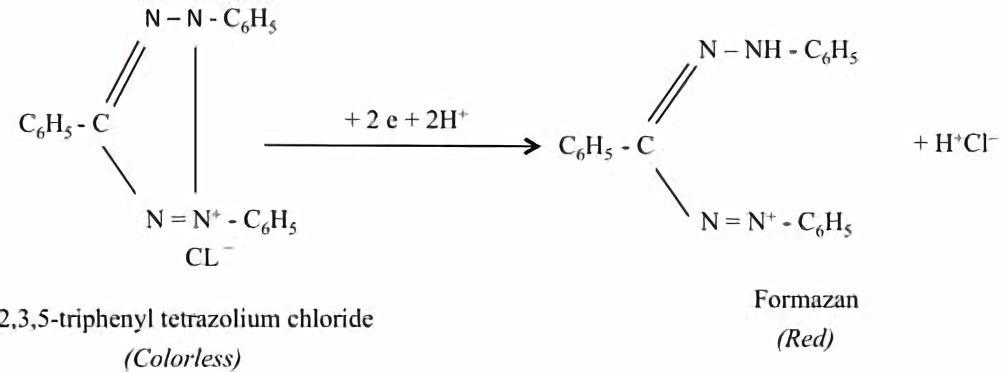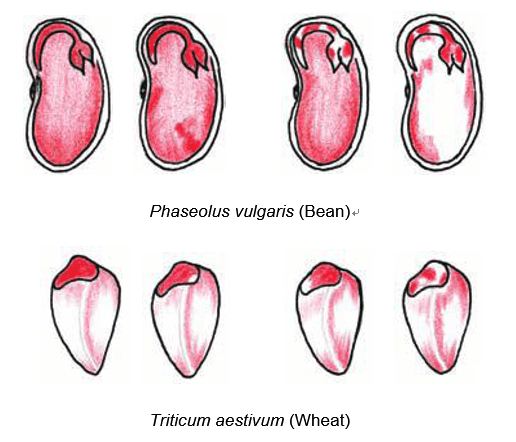Tetrazolium (TZ) testing is a rapid method (can be finished within less than two days) for the evaluation of seed viability. This method has been widely used by seed scientists to assess germination potentials, to determine the extent of seed damage, and to evaluate seed vigor and/or other seed lot problems.
The principle of TZ testing is based on the presence of dehydrogenase activity in viable seed tissues during the respiration process. Dehydrogenase can catalyze the colorless 2,3,5 triphenyl tetrazolium chloride solution into a red dye formazan (Figure 1). Therefore, living tissues of seeds that imbibe tetrazolium chloride will be stained red, while dead tissues will retain their natural color (Figure 2).
 Figure 1. The principle of TZ testing (Elias et al., 2012).
Figure 1. The principle of TZ testing (Elias et al., 2012).
 Figure 2. Examples of TZ testing for seed viability test (Elias et al., 2012). (Left two: viable seeds; Right two: non-viable seeds)
Figure 2. Examples of TZ testing for seed viability test (Elias et al., 2012). (Left two: viable seeds; Right two: non-viable seeds)
A standard TZ testing assay involves the following steps:
Lifeasible, as a global company specialized in plant biotechnology, offers innovative and reliable solutions for the evaluations of seed viability. Our skilled seed scientists and experts have contributed decades of dedicated work for the exploration and optimization of seed viability test. We proudly offer competitive short-turn-around and high-quality TZ testing service. Noticeably, we offer customized services to adapt to specific species and different research goals. Our tailored protocols guarantee the optimal experimental conditions, including imbibition time, moistening time, cutting manner, TZ concentration, staining time and temperature, and so on. We are devoted to providing our worldwide customers with our featured technologies, service plans, collaboration options and more.
Reference
Lifeasible has established a one-stop service platform for plants. In addition to obtaining customized solutions for plant genetic engineering, customers can also conduct follow-up analysis and research on plants through our analysis platform. The analytical services we provide include but are not limited to the following:
July 13, 2024